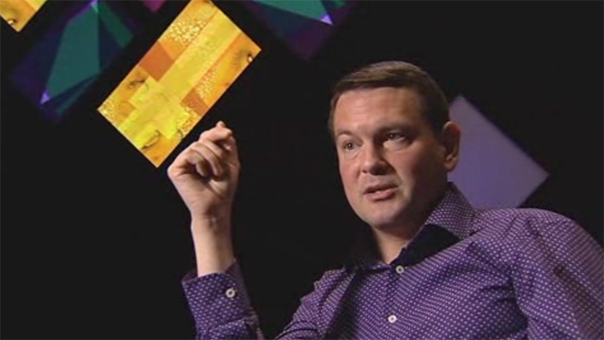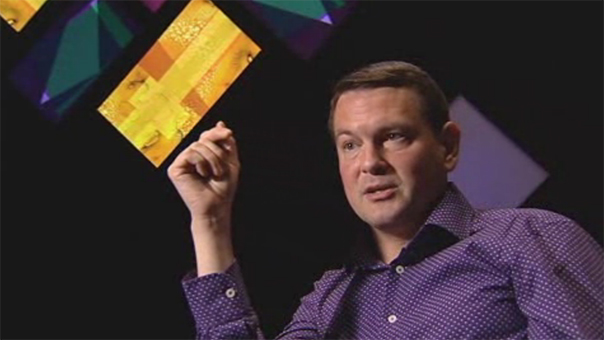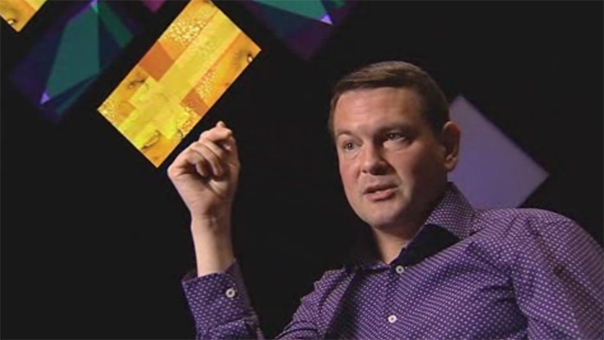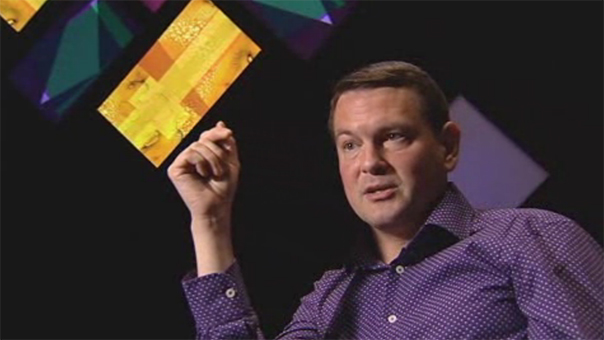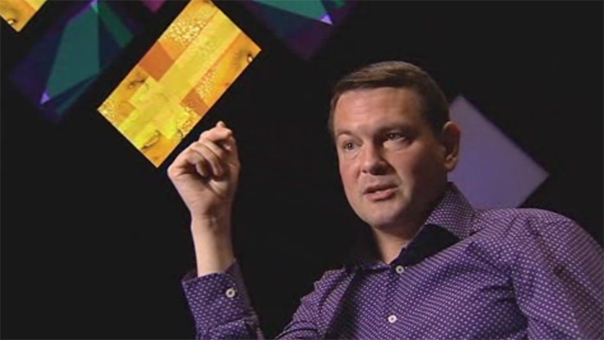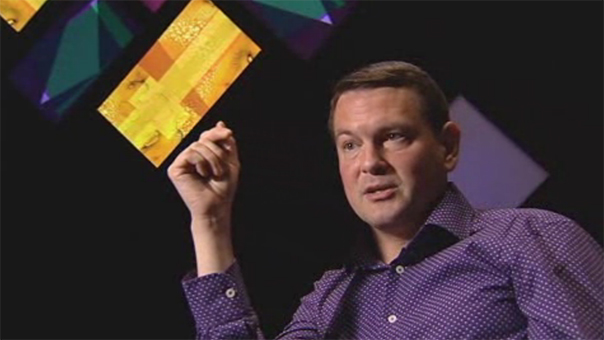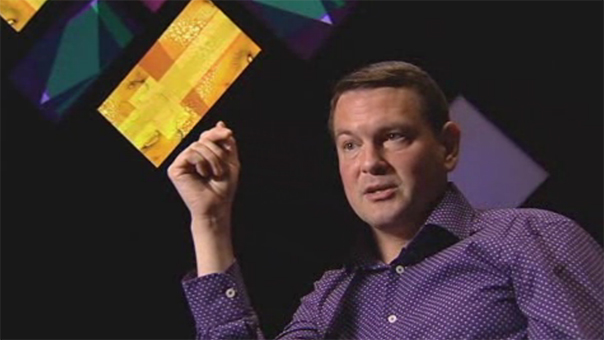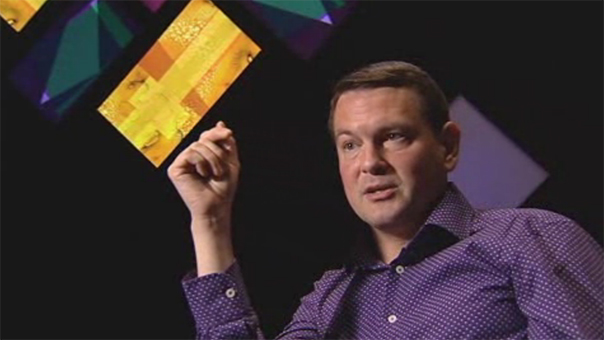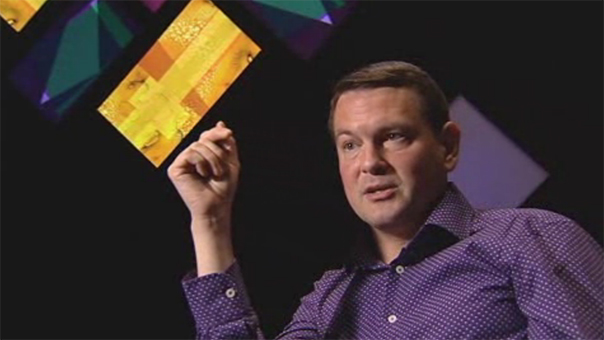77 Million Paintings: generative process
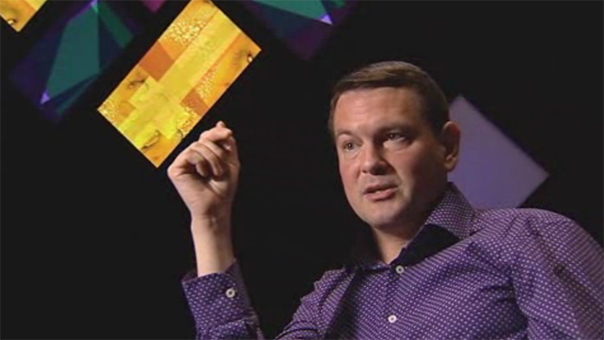
Viewing guide
-
What are computers good at doing? What can humans do better than computers can?
-
Can you think of any software which might utilise ‘randomisation’ where there is no pattern and you can’t predict the next event?
-
Do you think humans or computers would be better at choosing things completely randomly? Give examples to support your answer.
-
Research some examples of generative art. How was a generative process used to produce it?
-
What’s your opinion about the new way Eno used a computer to create the installation?
Interviewer: How does the generative process used in this installation compare to the processes Brian used in the creation of other generative music?
Nick Robertson: Well, there are actually two generative processes that are used in this show. There’s one for the audio and that is how Brian has traditionally made generative music by randomising the overlaps of things. And that’s actually quite a physical thing in that there are CDs and there are players and they physically kind of, well not physically, the audio overlaps. The difference between this—ie 77 Million Paintings—is that this is the first time that’s been applied to visual paintings digitally, so it’s the first time that he’s using software to randomise it. Most technologies were developed either because it made things cheaper, faster, more efficient or imposed a greater degree of control over processes. It was an exercise in thinking about the way that technology can increase randomness. Now, people think of computers as very controlling and indeed they are. They’re an extremely precise machine for absolute control. But what computers are also brilliant at doing is absolute randomising and because it’s digital data computers can randomise brilliantly like no other process. So in the past, even with the audio in these shows when Brian used to do stuff with projectors, eventually it would come back to the beginning because there was no real way of randomising a physical thing, whereas because this isn’t a physical thing, this is digital data and it’s run by a computer, a computer can randomise infinitely and that’s the first time this has been possible. So, it’s using a computer as a scrambling element rather than a controlling element.
